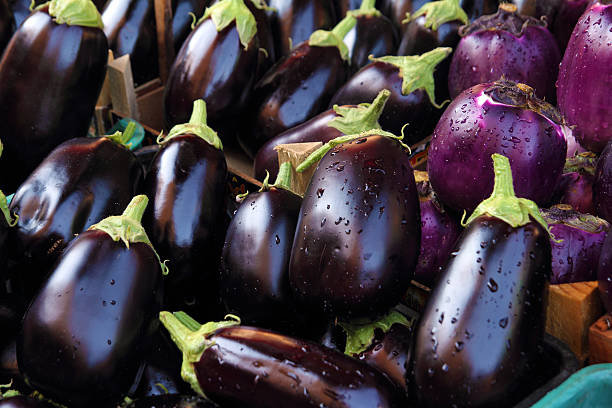Brinjal, also known as eggplant or aubergine, is a versatile vegetable that is enjoyed in many dishes around the world. In addition to its delicious taste, brinjal is also known for its numerous health benefits. In this article, we will discuss the nutritional value of brinjal and whether or not it is healthy for you.
Nutritional Value of Brinjal
First, let’s take a look at the nutritional value of brinjal. Brinjal is a low-calorie vegetable, with only 35 calories per cup. It is also a good source of fiber, providing 3 grams per cup. Brinjal is also rich in vitamins and minerals, including vitamin C, vitamin K, vitamin B6, folate, potassium, and manganese. Additionally, brinjal is a good source of antioxidants, which can help protect the body from damage caused by free radicals.
Is Brinjal Healthy for You?
One of the key health benefits of brinjal is its ability to lower cholesterol levels. The fiber and phytosterols found in brinjal have been shown to reduce the absorption of cholesterol in the gut, leading to lower cholesterol levels. Brinjal is also a good source of potassium, which can help lower blood pressure and reduce the risk of heart disease.
Brinjal is also beneficial for maintaining healthy skin. The antioxidants found in brinjal, such as nasunin and chlorogenic acid, have been shown to protect the skin from damage caused by UV rays and other environmental factors. Additionally, the vitamin C found in brinjal is important for collagen production, which is necessary for healthy skin.
Another benefit of brinjal is that it may help to protect against certain types of cancer. The antioxidants found in brinjal, such as nasunin, have been shown to have anti-cancer properties. Additionally, the fiber found in brinjal has been shown to reduce the risk of colon cancer.
Brinjal is also beneficial for gut health. The fiber found in brinjal can help to promote regular bowel movements and prevent constipation. Additionally, the antioxidants found in brinjal have been shown to have anti-inflammatory properties, which can help to protect the gut from damage caused by inflammation.
Overall, brinjal is a delicious and healthy vegetable that is packed with nutrients. It is low in calories, high in fiber, and rich in vitamins, minerals, and antioxidants. Additionally, brinjal can help to lower cholesterol levels, protect the skin from damage, reduce the risk of certain types of cancer, and promote gut health. So, brinjal is a great addition to any diet.
In conclusion, brinjal is a nutritious vegetable that offers a wide range of health benefits. Its high fiber and antioxidant content, among other nutrients, make it an ideal food choice for those looking to improve their overall health and well-being. Adding brinjal to your diet can be a simple and delicious way to improve your health, and it can be enjoyed in a variety of ways, from grilling to roasting, to incorporating it into curries, stews, and casseroles. It’s a versatile vegetable that can be enjoyed by anyone, regardless of dietary restrictions.

 Home
Home Health
Health Diet & Nutrition
Diet & Nutrition Living Well
Living Well More
More












